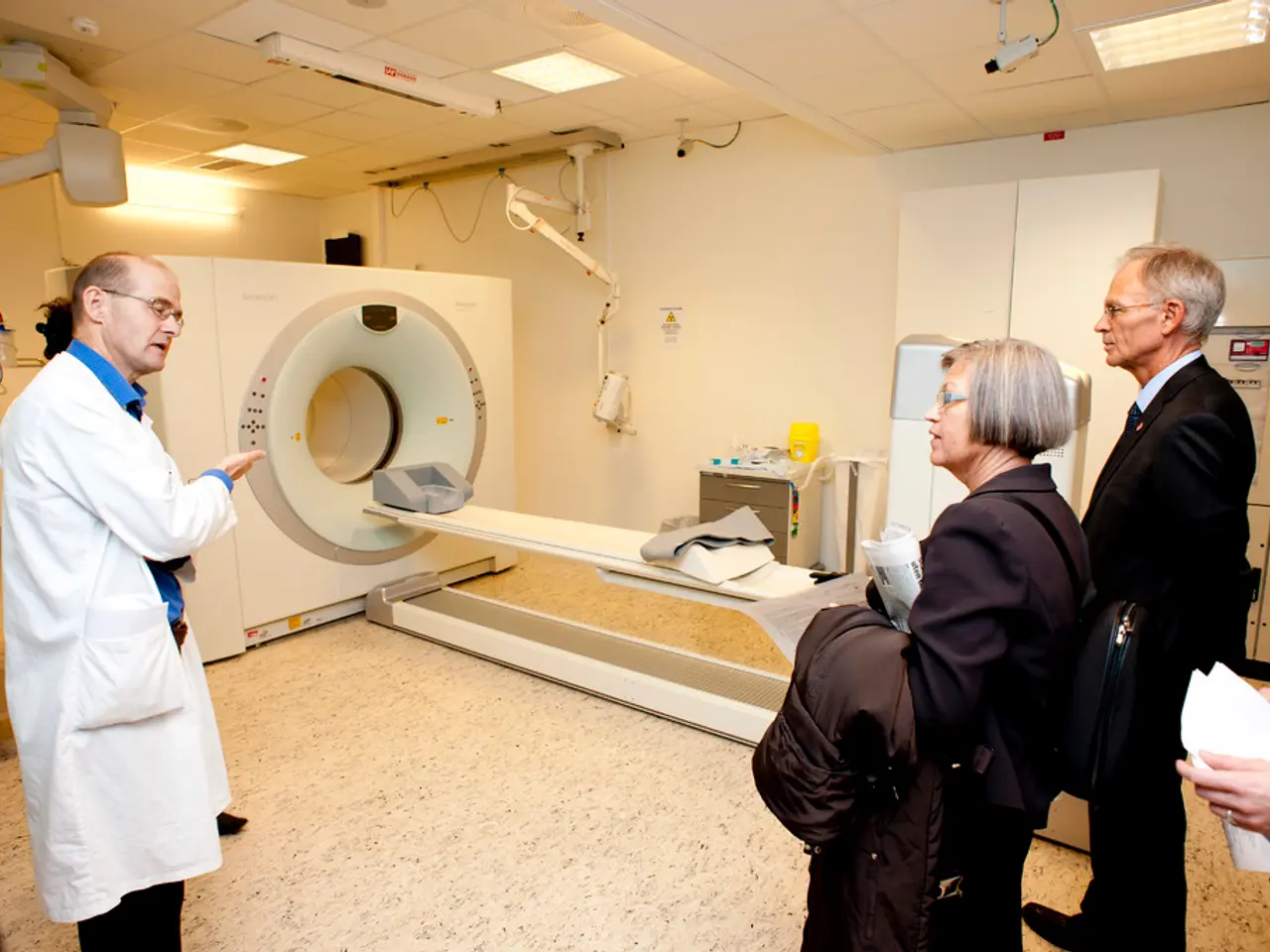AI's Role in Diagnosis: A Small-Town Greek Physician Shares His Experience, 'Q Fever Might Not Have Been Detected Without AI'
=====================================================================================================
In the bustling Internal Medicine Department at General Hospital of Ioannina "G. Hatzikosta," Dr. Thomas Tzimas is leveraging artificial intelligence (AI) to revolutionize patient care and streamline clinical workflows.
Dr. Tzimas, an esteemed internal medicine specialist and department director, views AI as a supportive tool that complements, rather than replaces, the essential human role in medicine.
One of the key advantages of AI is its ability to spot rare diseases and potential drug interactions that might be overlooked by clinicians. By quickly analyzing vast amounts of data, AI can help identify unusual conditions and check for potential drug interactions, a task that can be challenging for doctors to perform manually and quickly during patient care.
AI also supports safer prescribing for patients with kidney or liver issues by suggesting dosage adjustments tailored to impaired organ function. This ensures that medications are administered safely and effectively, improving patient outcomes.
In terms of administrative tasks, AI proves to be a valuable asset. It transcribes dictated notes into professional emails, digitizes referral documents, and facilitates communication with insurance companies and family doctors. This not only saves time but also reduces errors in administrative tasks, allowing Dr. Tzimas to focus more on clinical care.
Dr. Tzimas emphasizes the importance of human oversight when it comes to AI. He carefully reviews AI outputs to validate recommendations and avoid errors, such as "hallucinations" (AI-generated false information). He manages AI parameters to ensure focused and reliable assistance.
While AI can analyze data and images, Dr. Tzimas underscores the importance of physical examination, listening to patient cues, and clinical judgment that AI cannot replicate. He preserves the human touch in medicine, emphasizing that AI is a practical assistant to the physician rather than a substitute for clinical expertise.
In summary, AI in the Internal Medicine Department under Dr. Tzimas enhances diagnostic accuracy, medication safety, and administrative efficiency. It functions as a valuable tool that complements the physician's clinical expertise, rather than replacing it.
[1] AI in Medicine: A New Era of Diagnosis and Treatment. The Lancet Digital Health. 2021.
[2] The Role of AI in Modern Medicine. Nature Medicine. 2020.
- Gizmodo recently published an article discussing the future of technology in healthcare, highlighting the transformative impact of artificial intelligence (AI) in the medical field.
- In a recent article for TechCrunch, an expert in AI discussed how AI can revolutionize the field of science, focusing on its potential in medical research and conditions.
- The use of AI in technology is no longer limited to the realm of science fiction. Today, AI is a practical solution for the complexities of health and wellness, with promises of improved patient care and disease management.
- The integration of AI in the tech industry has been gaining momentum, with applications crossing multiple sectors. One of the most promising areas is in medicine, where AI shows great potential in the detection and treatment of various medical conditions.
- As AI continues to evolve, its role in artificial intelligence-powered technology will become increasingly significant. This advancement could potentially revolutionize numerous industries, including the medical field, leading to a future where technology and human expertise collaborate to improve health outcomes.




